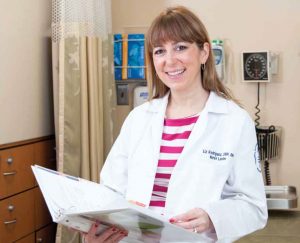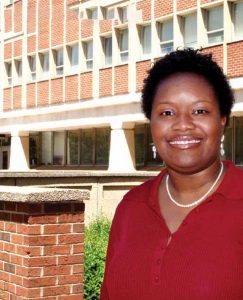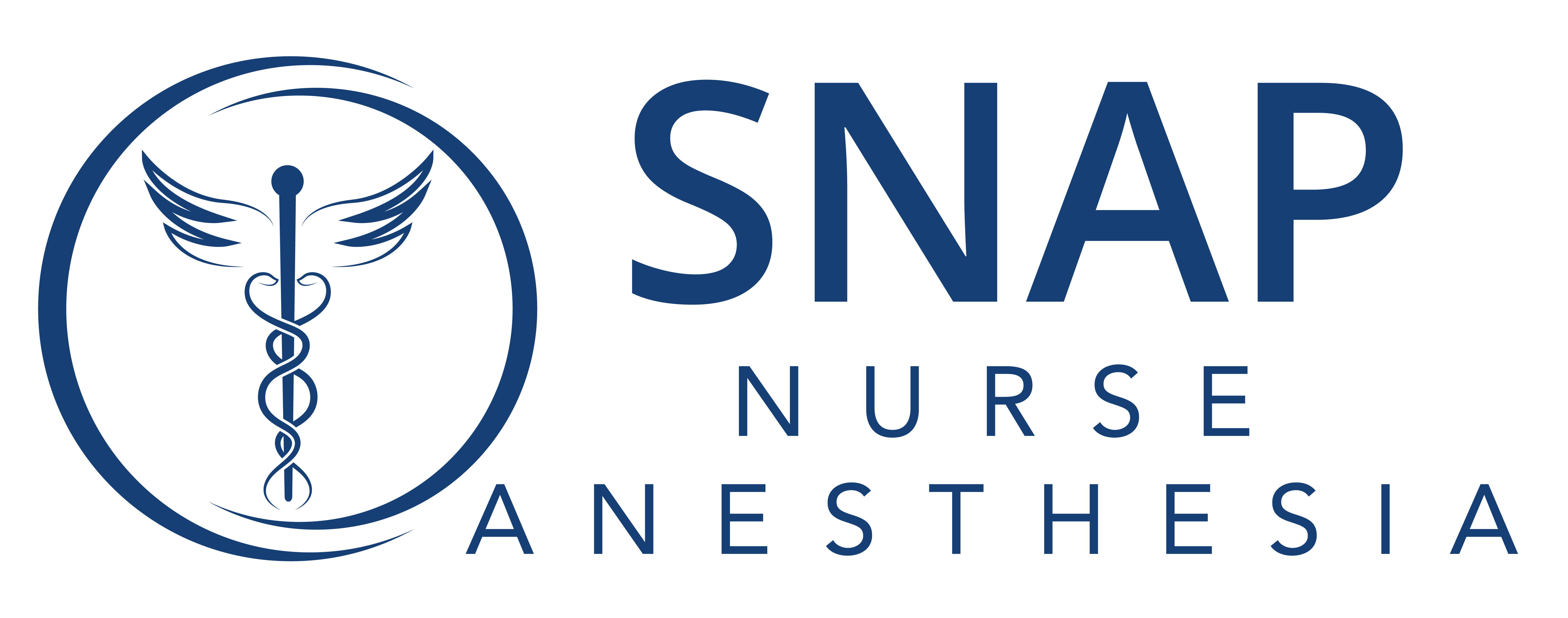
DNP or PhD: Which Is Right For You?
The increasing complexity of health care has created a demand for advanced competencies in nursing practice, faculty, and leadership roles. In 2004, the American Association of Colleges of Nursing (AACN) moved to change the educational requirement for advanced practice nursing (APN) to a doctoral level degree by 2015. The resulting new degree, the doctor of nursing practice (DNP), provides an opportunity for APNs to earn a doctoral level degree with a clinical focus rather than the traditional research focus inherent in PhD programs. Nurses seeking terminal degrees now have choices beyond which school to attend. DNP or PhD—which is right for you?

Elizabeth (Liz) Rodriguez, DNP, RN, OCN®, says that her DNP degree prepared her to be a leader in the healthcare system.
The DNP Route
ONS member Elizabeth (Liz) Rodriguez, DNP, RN, OCN®, a nurse leader in Ambulatory Care Services at Memorial Sloan Kettering Cancer Center in New York, NY, earned her DNP from Duke University in Durham, NC.
“Initially, I explored PhD programs. Since I wasn’t an advanced nurse practitioner, I ruled out the DNP option but was eventually encouraged to take a closer look. The Duke DNP aligned closely with my personal interests; it was described as a ‘clinical doctorate’ and used the term ‘transformational leadership,’” she explains.
Pursuing the DNP seemed the best choice for Rodriguez. “Personally, the DNP fits my interests. The skills and knowledge I acquired in the DNP program prepared me to be a leader in a healthcare system. Professionally, DNPs fill a great need since these nurses translate research into practice. We should see the two degrees as partners—one isn’t better than the other.”
So, what are the drawbacks to the DNP status? According to Rodriguez, “Lack of awareness of the meaning of DNP within nursing and health care as a whole is the only issue; PhD is such a classic designation.”
Following the PhD Path
ONS member Ashley Leak, RN-BC, MSN, OCN®, currently pursuing a PhD at the University of North Carolina at Chapel Hill School of Nursing, found her decision a little more straightforward.
“I always wanted to earn a PhD, and there weren’t many DNP programs when I went back to school in 2007. I’ll also admit that I didn’t know much about the DNP designation at that time,” she explains.
Leak also likes the advantages that she sees in a PhD. “The degree credentials are widely recognized among peers; it also adds credibility when writing grants. Earning a PhD has also strengthened my research skills, but it’s important to remember that having a PhD doesn’t mean that you can’t practice bedside nursing anymore. Patient care keeps me centered; if you find passion in your work, it will always be fun!”
PhD and DNP by the Numbers
The DNP can be a viable alternative to the PhD in nursing, but concerns have been raised. The shift to DNP as the entry level for nurse practitioners (NPs) is an educational initiative. It is presently not a requirement for state licensure or certification. In fact, the cost of additional education to obtain a DNP may not be offset by an increase in salary for practicing NPs. Longer education to be a NP may restrict the number of NPs produced at a time when there is an anticipated increased demand for primary care providers.
According to the American Association of Colleges of Nursing (2011), 153 DNP programs, 124 PhD programs, and 73 baccalaureate-to-research doctorate programs were offered in 2010. Enrollment for both advanced degrees showed increases. Approximately 20% of students enrolled in either doctorate are minority students. Interestingly, despite being only 6.6% of the nursing workforce, men represent 7.5% of students in PhD programs and 9% in DNP programs. Last year saw a total of 533 graduates from research-focused doctorates and 1,282 from practice-focused doctorates.
American Association of Colleges of Nursing. (2011, March). Despite economic challenges facing schools of nursing, new AACN data confirm sizable growth in doctoral nursing programs [Press release]. Retrieved from http://www.aacn.nche .edu/Media/NewsReleases/2011/enroll surge.html

Ashley Leak, RN-BC, MSN, OCN®, says that she chose to pursue a PhD because of its wide recognition and credibility.
“Earning a PhD has strengthened my research skills, but it’s important to remember that having a PhD doesn’t mean that you can’t practice bedside nursing anymore.”
Relationship Between DNP and PhD
So, does the arrival of the DNP education herald the death of the traditional nursing PhD? Not at all, according to AACN. The DNP degree simply acknowledges the complexity of healthcare and is not designed to replace the PhD designation. The rapid advancement and growth of healthcare knowledge and technology has strained many MSN programs. As a result, many APN degree plans have been forced to expand their graduation requirements far beyond the original expectations.
In its Position Statement on the Practice Doctorate in Nursing, AACN (2004) recommended that the DNP should become the graduate degree for the current APN roles of clinical nurse specialist, nurse anesthetist, nurse midwife, and nurse practitioner. As such, the DNP will be the educational requirement for APNs by 2015 and will coexist with PhD programs. Although PhDprepared nurses will continue to perform research and disseminate findings, DNP-prepared nurses will apply and evaluate these findings in the clinical setting. In this manner, the two degrees work together to improve patient outcomes rather than threaten each other’s existence. Additionally, two terminal degree paths are expected to attract more students by offering the opportunity to focus on either clinical practice or research (AACN, 2011).
However, some have voiced concern that adding another degree will further confuse the role and identity of nursing. As an example, critics point to the doctor of nursing (ND) designation, which was easily confusable with a doctor of naturopathy degree. To minimize confusion and standardize the title given to graduates of practicefocused doctoral programs, the AACN recommended phasing out the ND title and replacing it with the DNP designation (AACN, 2009). The American Academy of Family Physicians ([AAFP], 2009) has expressed other issues with the DNP designation, specifically that DNP programs will prepare “inadequately trained people (to) replace physicians in primary care.” This is simply not the case, according to Mary Mundinger, RN, DrPH, former dean of the Columbia University School of Nursing in New York, NY (AAFP, 2009), yet the issue raised by the AAFP clearly indicates that confusion surrounding the DNP degree exists within health care.
Making the Choice
If you’re thinking about pursuing a terminal nursing degree, there are more options than ever before to consider. DNP programs vary widely in both entry requirements as well as the amount of time and money needed to complete the degree. Online degree programs offer convenience for individuals with busy schedules thus increasing the availability of a terminal degree in nursing to a larger audience. Nurses are already comfortable with distance learning, completing more than 1.7 million hours worth of continuing education credits online annually (U.S. Distance Learning Association, 2009).

“Ask yourself where you see your career path headed. Do you want to stay in a clinical setting with greater leadership roles?”
With 120 DNP programs available in 36 states and more in planning stages, the options to pursue a terminal nursing degree continue to expand. Finding the best answer for you often starts with self-awareness.
Rodriguez advises to start at the beginning. “Ask yourself where you see your career path headed. Do you want to stay in a clinical setting with greater leadership roles?”
Leak agrees. “Pursuing a PhD or DNP requires a serious commitment of time and money, so you first have to identify your ultimate goal. Do you want to perform research and lead your own studies? If that interests you, then you might want to consider a PhD. On the other hand, if you are more interested in integrating research findings into practice, then a DNP might be a better choice.” ✱
American Academy of Family Physicians. (2009). AMA testimony reveals subspecialists don’t like DNP equivalency claims, either. Retrieved from http://www.aafp.org/online/ en/home/publications/news/news-now/profes sional-issues/20090624ama-dnp.html
American Association of Colleges of Nursing. (2004). Position statement on the practice doctorate in nursing. Retrieved from http://www .aacn.nche.edu/DNP/pdf/DNP.pdf
American Association of Colleges of Nursing. (2009). Frequently asked questions: Position statement on the practice doctorate in nursing. Retrieved from http://www.aacn.nche.edu/dnp/ dnpfaq.htm
American Association of Colleges of Nursing. (2011). Doctor of nursing practice (DNP) fact sheet. Retrieved from http://www.aacn.nche .edu/Media/FactSheets/dnp.htm
U.S. Distance Learning Association. (2009). Distance learning: Enabling the race to the top. Retrieved from http://www.usdla.org/assets/ pdf_files/Distance_Learning_Briefing.pdf
Apply for Doctoral Scholarships From the ONS Foundation
ONS Foundation doctoral scholarships provide funding for RNs who are interested in and committed to oncology nursing to help them continue their education, whether it’s through a DNP or PhD. For more information, visit www .onsfoundation.org/apply/ed/Doctoral.
Copyright of ONS Connect is the property of Oncology Nursing Society and its content may not be copied or emailed to multiple sites or posted to a listserv without the copyright holder’s express written permission. However, users may print, download, or email articles for individual use.
 Contributing Editor Heather McCreery, RN, MBA, OCN®, CCRC, is a clinical research coordinator faculty member at Northwest Vista College and a nursing house supervisor at Christus Santa Rosa Hospital in San Antonio, TX.
Contributing Editor Heather McCreery, RN, MBA, OCN®, CCRC, is a clinical research coordinator faculty member at Northwest Vista College and a nursing house supervisor at Christus Santa Rosa Hospital in San Antonio, TX.
